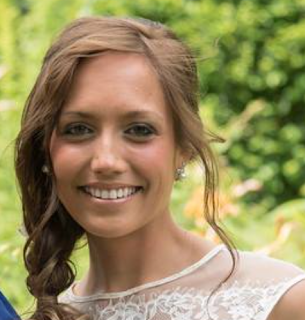Another WRiTE CLUB in the archives,
marking ten years of slush pile readers, skilled writers, and hundreds of
thousands of hopeful words. The competition is fierce, but the camaraderie is
fiercer, bringing writers together with some of the most thoughtful and
constructive critique partners they’ll (n)ever meet.
I first heard about WRiTE CLUB through an editor
I admire and entered with the quiet intention of workshopping my craft. I can be
a verbose writer and knew a 500-word minimum would challenge me to be more
concise—cut adverbs, slash filler words, kill darlings, and so on. Through my
first two competitions, I did learn to be more intentional with my language.
But I also learned a thing or four about storytelling:
1.
Figurative
language is cake: delicious in small servings. I love a well-placed simile or a unique metaphor. It can add
a bit of richness or sophistication to the writing. But if it’s used too much
or without regard for the tone of the piece, it can rip a reader right out of
the story. So before you decide her eyes are look like two bowls of blue Jello,
consider if it’s serving the plot.
2.
Mood is just as
important as storyline. If I begin a
new project by asking myself “what’s the plot?” it usually leads to a blinking
curser or a cursing writer. So now I ask myself “what makes me feel something?”
I start with a place, a mood, a memory that evokes a strong reaction and then
build a story around it. When a piece starts from my gut instead of my head, it
tends to comes across as more authentic and sets the tone I want people to feel
when they read it.
3.
When it comes
to revision, get rid of your ego but keep your heart. Editing is the hardest part of writing for me—a different,
more tactical headspace. But it’s a necessary evil. The writers who thrive in
WRiTE CLUB cage bouts are the ones who understand if and how to integrate
feedback. Usually, it comes down to this: if three or more critics call you out
on a plot hole or clumsy sentence, it’s not a subjective observation and you
shouldn’t cling to it. (Been there, ate that humble pie.) But if you believe in
something, if you feel like a certain detail is integral to your theme or
character, defend it, even in the face of criticism. It’s up to you to know the
difference.
4.
Mind your arc. It doesn’t matter if it’s flash fiction or a chapter in your
300k word novel (bless your heart), I’ve learned that every piece of writing
needs some rising and falling action. Even if the end isn’t tied in a bow,
people crave a sense of closure. I’m also a big fan of a circular narrative
where the beginning and end mirror each other in unexpected ways.
Needless to say, I didn’t win my first two swings
around the ring, but I was able to finetune my craft and, perhaps more
importantly, get to know myself better as a writer. I went into the 2021
competition equipped with the lessons I’d learned and fully leaning into my
strengths. A few comments on the results:
·
House of Whispers - This piece started with the first
line. I was fixated on this concept of a slightly sentient house but didn’t
like that haunted mansions get a bad rap for being malevolent. I wanted Château
du Chuchote to protect its residents, or at least some of them. That’s when
Nicolette arrived.
·
House of Whispers (Partie Deux) - Here, I took a big
WRiTE CLUB risk: whipping up a sequel for the readers who enjoyed the first
installment. This is a safe play because you have a sense of their taste, but
many readers prefer to see versatility. While it was fun to revisit this scene
and try out a new POV, I just squeaked by in the round. (And yes, my French is très
mauvais.)
·
Lost and Found Boys - I have a mild obsession with
Peter Pan (this is not my first dystopian
PP retelling in WC) and knew the mood I wanted to create—a sad
depiction of childhood innocence, using the landfill as a metaphor for the
burdens of society. I would not recommend introducing an ensemble cast in 500
words, but I still love these boys.
·
The Keeper of Kilkee - For those who read it, this
final piece kept with the same haunting vibe as the first three, but dropped
into a new story on an Irish coast. This one was a bit allegorical too,
exploring the cyclical nature of truth and rumor, beliefs and reality. This one
had an obscure ending, which could have gone either way with the judges.
Thankfully, the luck of the Irish was on my side.
The prevailing lesson from this season is that there is SO much talent out there. The caliber of the writing and the storytelling was inspiring. Even if I hadn’t pulled off a win, I would still count this experience as a success and look forward to being part of this community for years to come.
A huge thank you to DL and Kim Hammons, Wild Lark Books, the celebrity judge panel, and slush pile volunteers for providing writers with this opportunity for competition, kinship, and some incredible reads. Until next year, happy writing!



Congratulations on the win.
ReplyDeleteHope you're having a great day! My latest blog post has my theme for the April #AtoZChallenge (I'm writing speculative fiction and looking for prompts).
At Operation Awesome we have the #PassOrPages query contest going on (friends or enemies to lovers Romance).
Looks like I'll be very busy the next few weeks!
March quote: "Twenty years from now, you will be more disappointed by the things that you didn't do than by the ones you did do." - Mark Twain